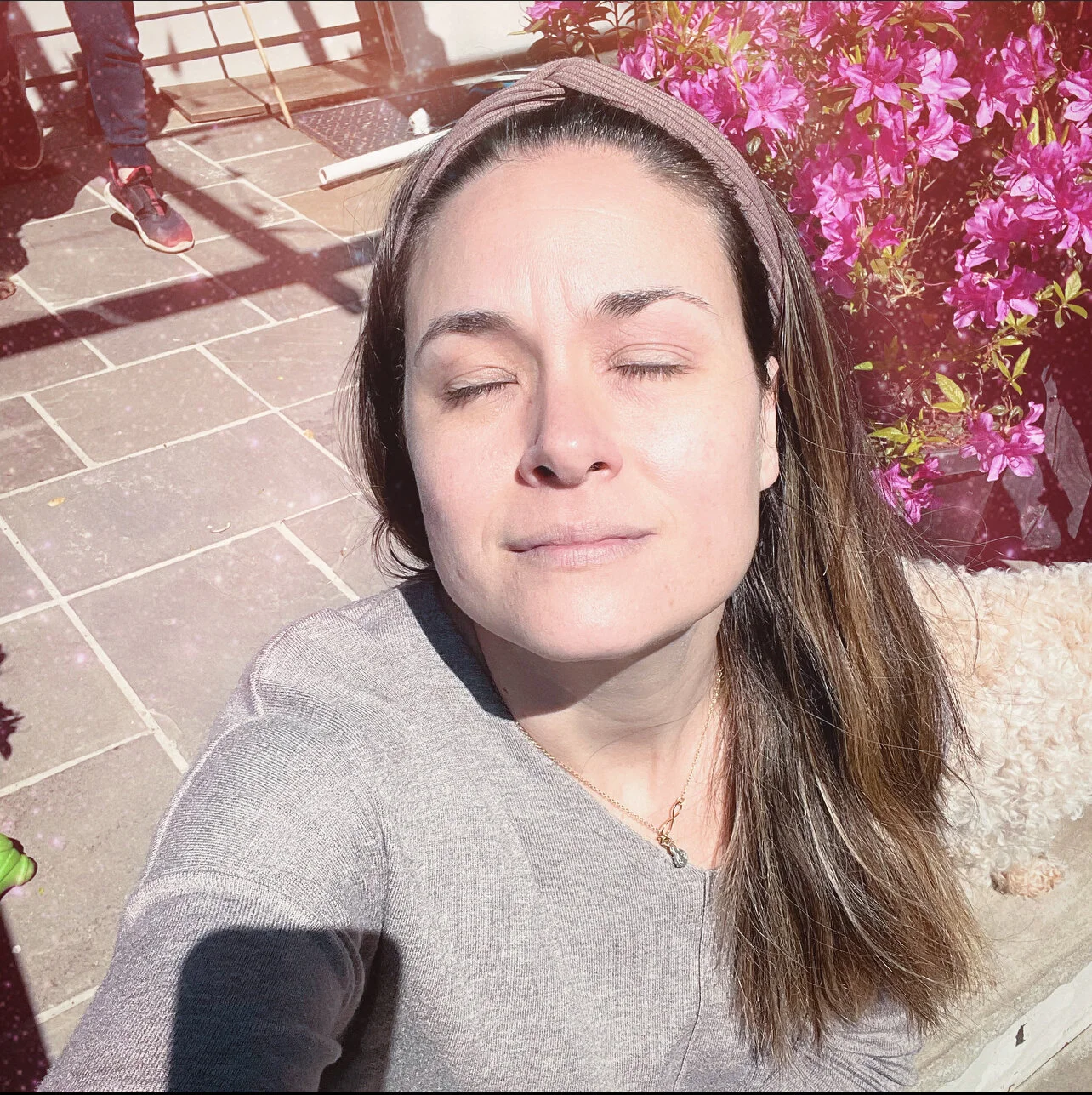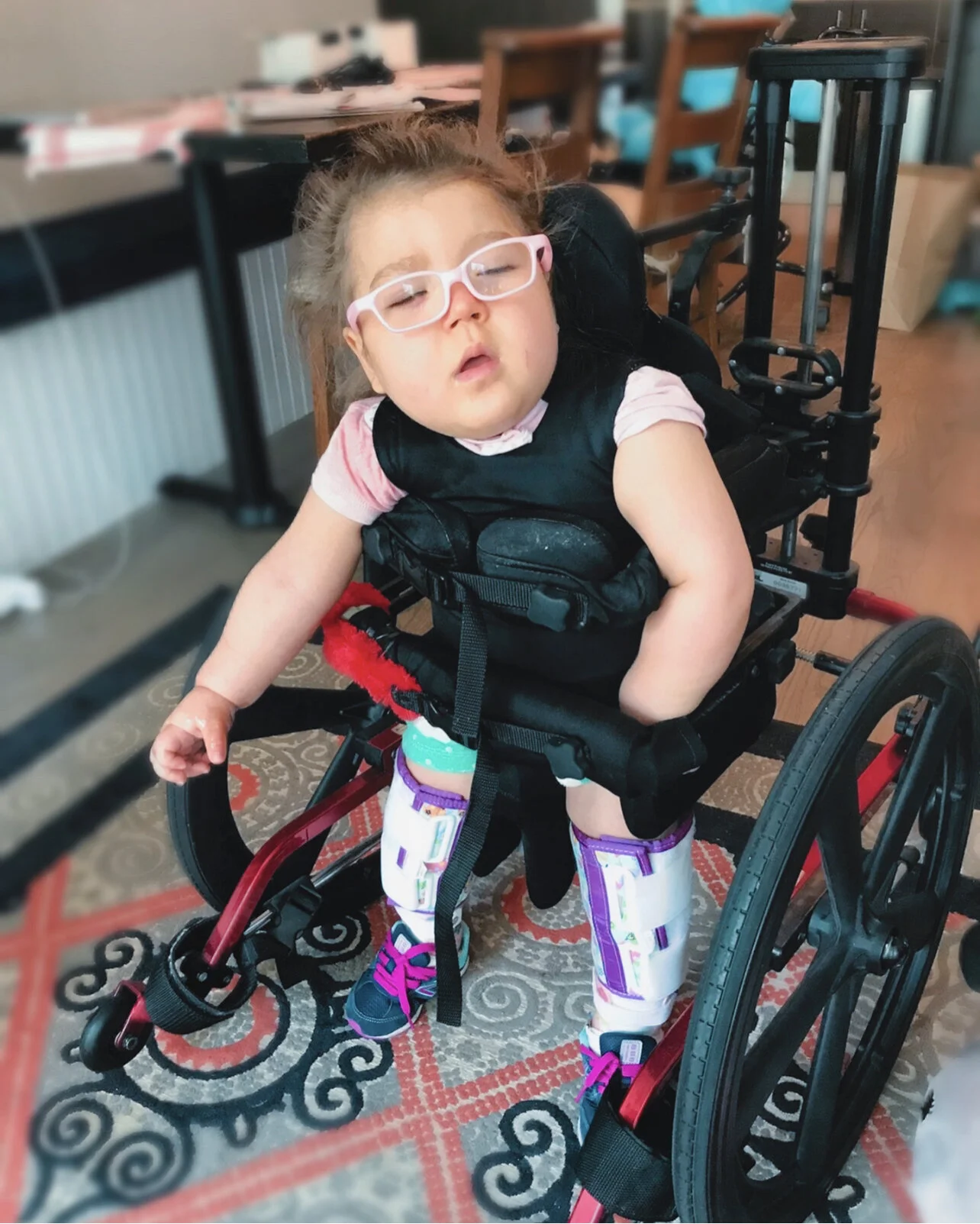It's ok to be ok
Recent efforts to normalize mental health and depression created the now popular phrase ‘it’s ok to not be ok’. This is a completely valid and important sentiment and one I’ve clung to as I’ve navigated life in recent years - especially during Adelaide’s life. Caring for her was hard and so often I felt like I needed to outwardly put a smile on my face - heaven forbid anyone perceive me feeling like my daughter was a burden. But it was hard and I needed to be told that it was ok to acknowledge the hard and, simply put, that it was ok to not be ok. This sentiment carried on after she died - helping to lessen some of the guilt I felt as a result of my depression.
Then, last week, I came across an Instagram post by psychotherapist, Seerut K. Chawla, in which she said, “it’s ok to be ok.” These five small words, eleven letters, hit me with the force of a wild pitch.
It’s ok to be ok.
I mean, they seem pretty obvious, right? Being ok is the low bar for which we strive. So, why was this sentence having such an impact? And then it dawned on me - I’m actually doing ok. I’ve been doing ok for awhile now but I’ve struggled to acknowledge it. Sure I still have bad days, even a bad week every now and then. But the heavy weight of depression, the exhaustion and painful reminders are easing - and that’s the problem. After experiencing trauma and extreme loss, being ok comes with its own emotional strings.
Just typing this truth I am feeling guilt and embarrassment. My brain throws rapid fire questions at me not waiting for a response:
“By being ok are you dishonoring her?”
“Are you forgetting her?”
“Shouldn't you be mourning her forever?”
“Why do you get to be ok when so many others around you are still fighting illness and mourning loss?”
“What will other people think of you being ok?”
And this is where I tell my brain to can it, because one of Adelaide’s many lessons was to not give a flying F***, (yes, capital F), what anyone else thought. We do us, with our knowledge and experience - everyone else does them. Sometimes I’m ok and sometimes I’m not. If right now I’m ok more than I’m not then let’s go with that. After all, no one is using the volume of my tears to determine how much I miss her. This is not a competition, an evaluation or test - it is my life. MY life.
The voice in my head pipes up and says contradictorily, “That’s good, that’s what Adelaide would want. She wouldn’t want you to be sad all the time.” And once again I’m fired up, guns ablazing. Because Adelaide is my daughter - and her grandmother’s granddaughter for that matter - and as such, would never tell me what to feel. But also, when I’m sad, I’m not just sad for her - I’m sad for me too.
…Sorry, that was an unexpected tangent but I apparently needed to get it out.
Moving forward I’m going to hold both phrases in my mind: It’s ok to not be ok but it’s also ok to be ok.
It is not moving on, it is moving forward and, honestly, time doesn’t give us much of a choice in the matter. Still, time is relative and grief is anything but linear so it’s not worth the effort to worry about anyone else’s perceptions about our process. Our brains just work differently - all you have to do is sit in on a conversation with my husband and me to see this reality. Those that love and want to understand us will do so when we are ok and when we are not. Right now, as I type this, I’m ok. Acknowledging and accepting that, I think, is healthy progress.




